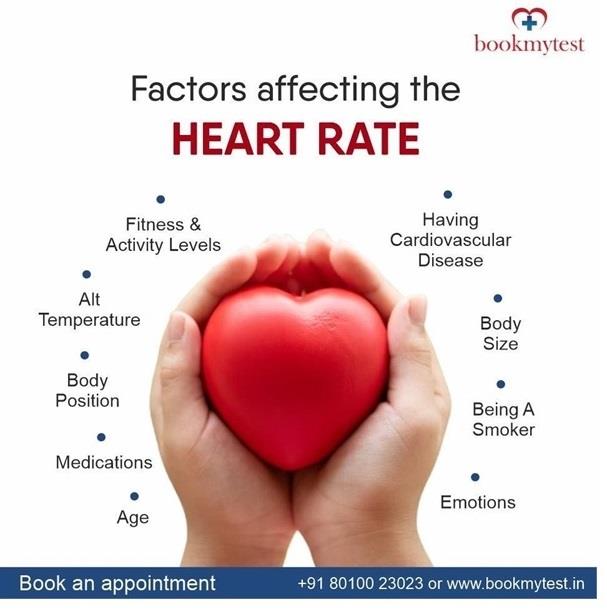
Factors Affecting Heart Rate: Exploring the Influencers on Your Pulse
There are certain factors that can affect your heart rate. As an adult, the normal range is 60 to 100 beats per minute. This range applies for anyone over the age of 17. Children and infants have faster heart rate due to their small body and heart size.
.
However, lot of things can cause your heart rate to affect:
1. Fitness and activity level: When you exercise, your heart pumps more blood around your body. A normal person pumps around 5-6 liters per minute, an average person can get up to 20 liters per minute while an athlete/exercising person can go as high as 35 litres per minute.
2. Alt Temperature: High temperature and high humidity can cause more blood flow to your skin. This causes the heart to beat faster while circulating twice as much blood per minute than a normal day.
3. Body position: Your pulse is usually the same when you are resting, sitting or standing. Sometimes as you stand for the first 15-20 seconds, your pulse may go up a little but after a couple of minutes it should settle down.
4. Medications: Some medicines may block your adrenaline that tends to slow your pulse. While too much thyroid medication or too high of a dosage will raise it.
5. Age: Aging can cause changes in the heart and blood vessels. For example, as you get older, your heart can’t beat as fast as it did when you were younger.
6. Having cardiovascular disease: A damaged heart will keep pumping blood through the body but the effort may weaken it. Due to this, a person’s heart rate can increase.
7. Body size: Body size usually doesn’t change pulse. But if you are obese, you might observe your resting pulse is higher than normal, but usually not more than 100.
8. Being a smoker: A person’s heart rate increases after smoking due to nicotine and carbon monoxide in tobacco. Overtime, these can increase the risk of heart and other diseases.
9. Emotions: If you’re stressed, anxious or extraordinarily sad or happy, your emotions can raise your pulse.